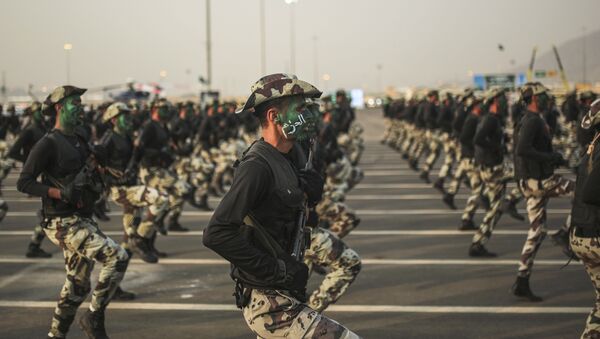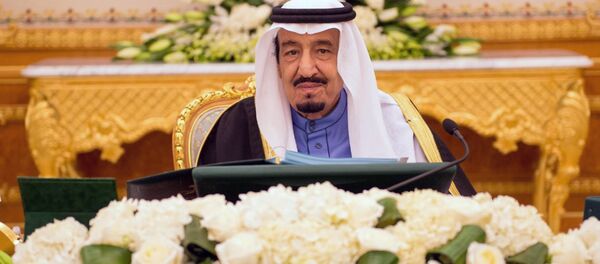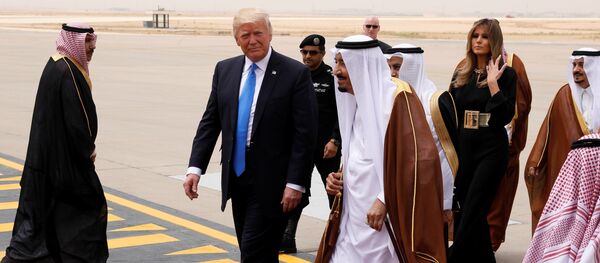Trump arrived in Riyadh on Saturday morning, the Saudi capital being the first stop of his nine day multi-country tour, which includes Israel, Italy, Vatican City and Belgium. As expected, US and Saudi officials have showered one another with kind words and accolades about the great friendship and partnership between the two countries.
And while the White House has tried to present Trump's trip as a grand and symbolic journey – with the president visiting the centers of the world's major Abrahamic religions, other observers and pundits have said that it looks more like an escape from scandals back home. Anti-Trump politicians and the establishment media have overwhelmed the new administration with dubious claims about secretive connections to Russia, and attacked him on other, more substantive issues, like healthcare reform.
Great to be in Riyadh, Saudi Arabia. Looking forward to the afternoon and evening ahead. #POTUSAbroad pic.twitter.com/JJOra0KfyR
— Donald J. Trump (@realDonaldTrump) 20 мая 2017 г.
Still, as political scientist Veronika Krasheninnikova points out in an analysis for Russia's RIA Novosti news agency, Trump's personal suffering at the hands of the US establishment is not an excuse to shield him from criticism of the real and "systematic military and political initiatives created by the president and carried out by his generals and the economic forces which stand behind him."
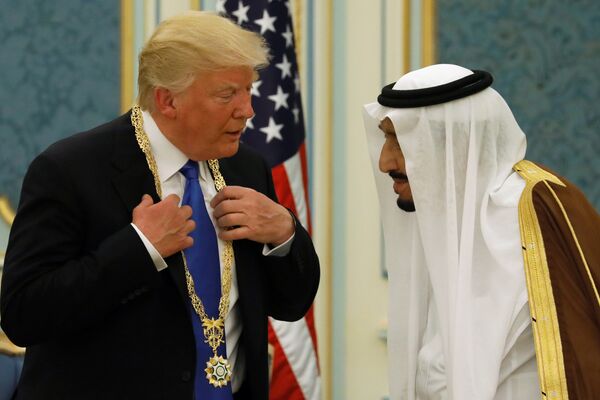
To be led by Saudi Arabia, the alliance's core members will include the UAE, Egypt and Jordan, with up to 41 countries participating (i.e. double the number of actual Arab states). Under this scheme, the US would take the role of organizer and provide support, but would not be a formal member. This 'Arab NATO' would also cooperate and exchange information with Israel.
Krasheninnikova explained that "like the North Atlantic Alliance, the 'Arab NATO' alliance would receive a charter and a permanent military contingent, which, if necessary, can be replenished from the armed forces of its member states, as well as by mercenaries. The alliance will be governed by a council consisting of the defense ministers of member states, with a rotating chairmanship."
She added that the seriousness of Washington's commitment to the creation of this new alliance is confirmed by the massive arms contracts lined up to be signed between the US and Saudi Arabia during Trump's visit.
"In Riyadh, Trump will announce the sale of between $98-$128 billion US worth of arms to Saudi Arabia...Sales could reach $350 billion over ten years. With this gesture, Trump is removing all military restrictions placed on the Saudis" by the previous administration, including over Saudi Arabia's ongoing war in Yemen. "According to US officials, sales will ensure the deep modernization of the Saudi army and navy, as well as the production and assembly of some weapons domestically."
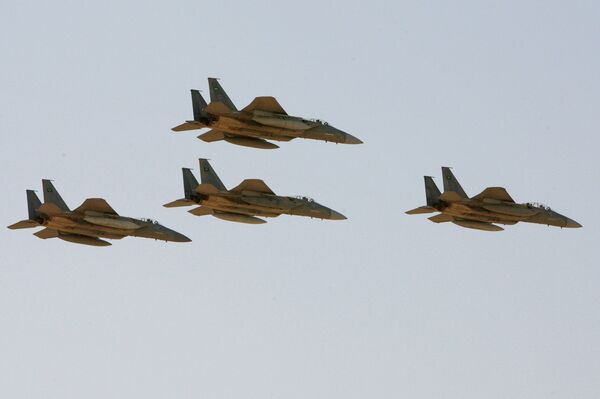
For the sake of comparision, Krasheninnikova noted, "$350 billion is seven times Russia's annual defense budget. This amount of weapons is certainly not intended for the Saudi war in Yemen. It is intended for a very large-scale war in the Middle East. By Washington and Riyadh's calculations, the first target should be Bashar Assad. The second should be Iran."
In other words, Krasheninnikova wrote, McMaster's words indicate that Washington sees Iran and Syria in the same category as globally-recognized terrorist organizations al-Qaeda and ISIS.
"Even before taking office, and many times since then, the Trump administration has said that it considers Iran to be a sponsor of terrorism. But not Saudi Arabia, of course – they are Washington's partner. It's worth recalling only that fifteen of the nineteen al-Qaeda hijackers on 9/11 were Saudi nationals."
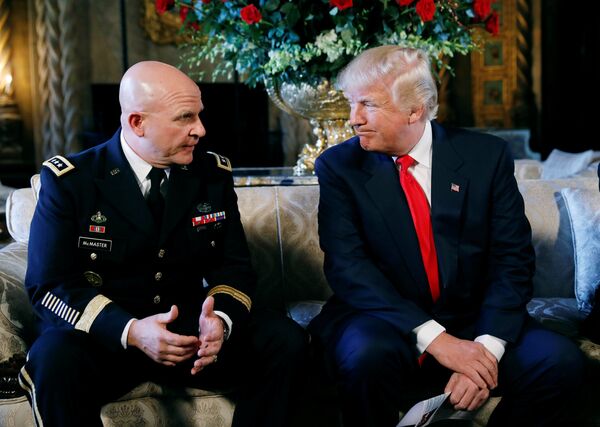
In fact, Krasheninnikova noted, the idea of an Arab NATO has actually been kicked around by US political and military planners for several years now. The need to create a US-friendly military alliance in the Middle East was only exacerbated by the fact that Washington's main partners – its European NATO allies, have been losing interest in America's wars.
"Under Trump, the stars aligned on this idea," according to the observer. "The White House has not even hesitated to admit that an escalation in the Middle East meets one of the main points of Trump's 'America First' doctrine: It establishes US leadership in the region, shifts the financial burden of military operations to Washington's allies, and creates jobs in the US through new orders for the military-industrial complex."
Furthermore, Trump's own interests and strategy aside, Krasheninnikova stressed that the powerful interests standing behind him in the MIC, including the Koch brothers, the Mercer family, Blackwater founder Erik Prince, "and other beneficiaries of wars" must also be into account.

As for the Saudis, the analyst observed that the White House has found a common ground with Deputy Crown Prince Muhammed bin Salman, the country's Defense Minister. "In fact, Washington had contributed to the rapid advance of the 31-year-old prince, known for his hunger for power, his love of weapons and wars."
"The Saudi incursion into Yemen in March 2015, given the American-style name 'Decisive Storm', kicked off only a month-and-a-half after his appointment as defense minister. General Kasem Suleymani, the Iranian national hero who developed the operation to save the Russian pilots of the Su-24 shot down by Turkey, characterized Salman as being 'so impatient that he might kill his own father, the king' to take up the throne."
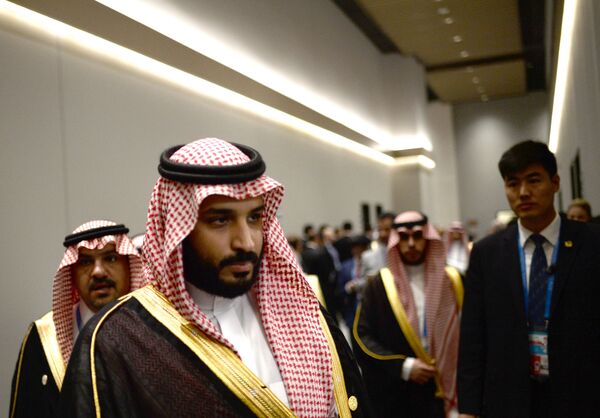
Krasheninnikova added that it was telling that the Deputy Crown Prince had sent his emissaries to meet with Trump officials, including Jared Kushner, immediately after Trump's victory last November.
What Does It All Mean for Russia?
Considering what these developments might mean for Russia, "whose Air Force is fighting Saudi, Qatari and US-sponsored terrorists on the distant frontiers of Syria," Krasheninnikova warned that the answer is: 'nothing good'.
"When the sponsors of terrorism are united into a military and political alliance, and gain a huge amount of weapons, just how much will their strength grow? Where in the region will these heavily-armed terrorist armies be sent by their American and Saudi hosts? If today there are already thousands of terrorists of Russian origin engaged in the war, and they plan to return home, how many will there be if the conflict is sharply escalated, and how can Moscow prevent their return?"
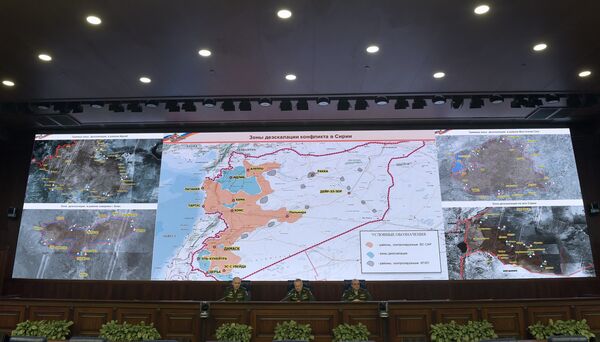
"What can we do in this situation?" Krasheninnikova asked. "For starters, we can stop believing in Trump's empty rhetoric, and understand that he, and his generals, constitute a clear and immediate threat to Russia. Now, even if Trump leaves office, the threat will remain. He has released the genie from the bottle…"
Ultimately, the observer emphasized that "Moscow must urgently begin the construction of an integrated system [of defense] to deter future aggression from south of our borders. This is a topic for a separate, and very serious conversation."

